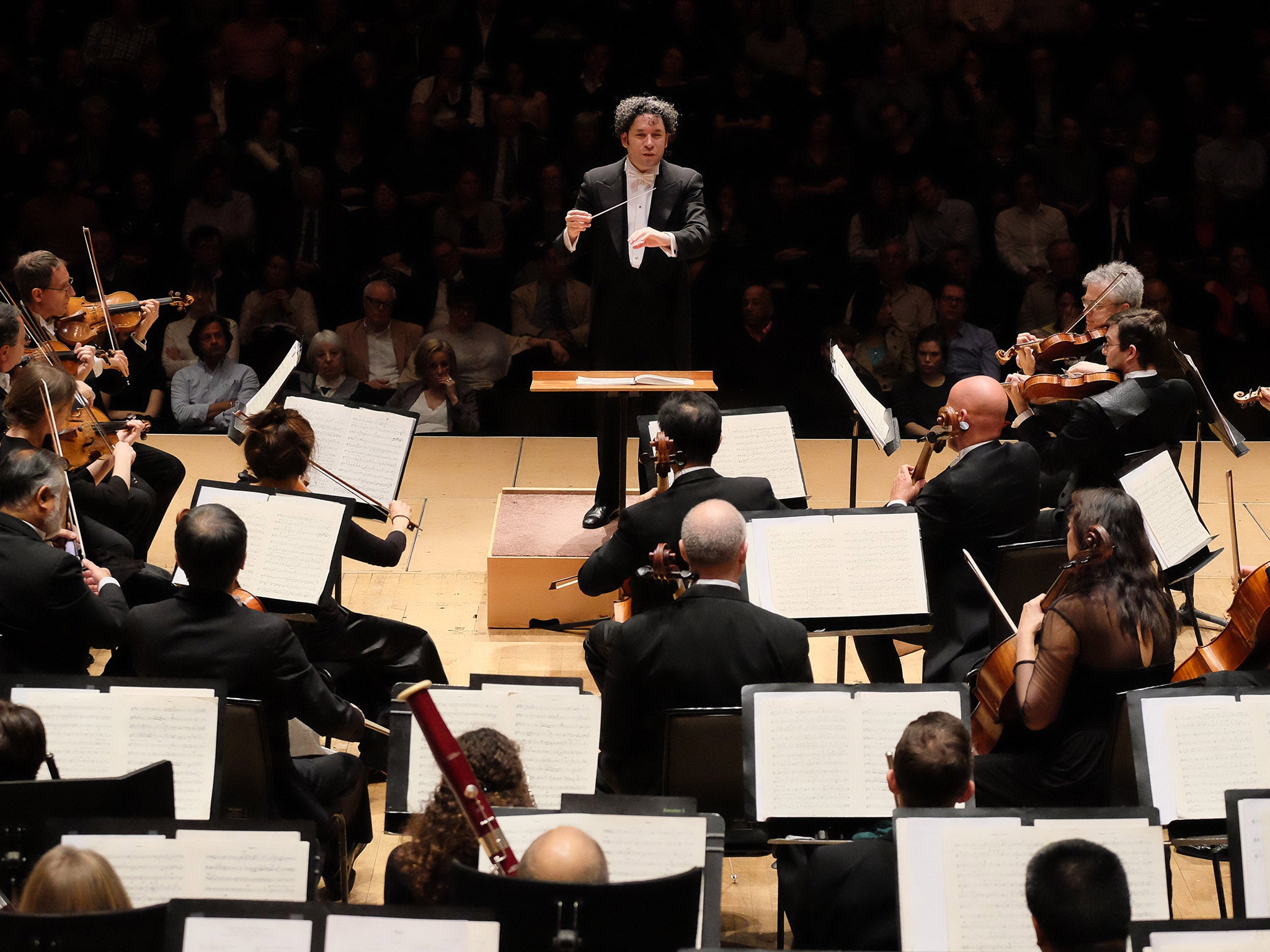Tiempo/LA Phil/Dudamel, Barbican, review: Following an entirely satisfying emotional arc
Their first concert, entitled ‘American Soundscapes’, was perfection incarnate

The last time Gustavo Dudamel raised his baton in London, it was to direct his Simon Bolivars in a painfully awkward accompaniment to Daniel Barenboim for two Brahms concertos. Now he’s in a brief residency at the Barbican with his other ‘family’, the Los Angeles Philharmonic, and what a difference! Their first concert, entitled ‘American Soundscapes’, was perfection incarnate, and followed an entirely satisfying emotional arc.
First came the British premiere of John Williams’s Soundings, a piece all about sound-colour which was designed to display the acoustic excellence of the new Frank Gehry hall in Los Angeles, but which – with the aid of ambient sampling, and smart-as-a-whip direction from Dudamel - magically transformed the dour old Barbican into something rich and rare.
If that piece suggested a composer playing with a new box of paints, what followed – Ginastera’s Piano Concerto No 1 – was a severely monochrome tour de force, whose drama was brilliantly realised with the extraordinary Sergio Tiempo at the keyboard. The first movement was in effect an accompanied cadenza, and the last a ferocious toccata, with a ‘hallucinatory scherzo’ and a musing Adagissimo in between. Tiempo’s performance was astonishing by its combination of unbuttoned wildness and fastidious precision.
If Dudamel seemed to let his fine players do their thing with minimal intervention in Andrew Norman’s jokey Play: Level 1, he took up the reins very firmly to lead them into the limpid waters of the final work in his programme, Copland’s Appalachian Spring. And on this he conferred a wonderfully mellow Mid-West glow, bringing out the music’s down-home charm, and letting the Shaker hymn at its heart grow ever richer as it passed from one group of instrumentalists to another.
Tonight the LA Phil will deliver Messiaen’s epic exploration of birdsong and synaesthesia, Des canyons aux etoiles…, and tomorrow Mahler’s Third Symphony: with the Dude in charge – and on such commanding form - these concerts should absolutely not be missed.
Join our commenting forum
Join thought-provoking conversations, follow other Independent readers and see their replies
Comments
Bookmark popover
Removed from bookmarks